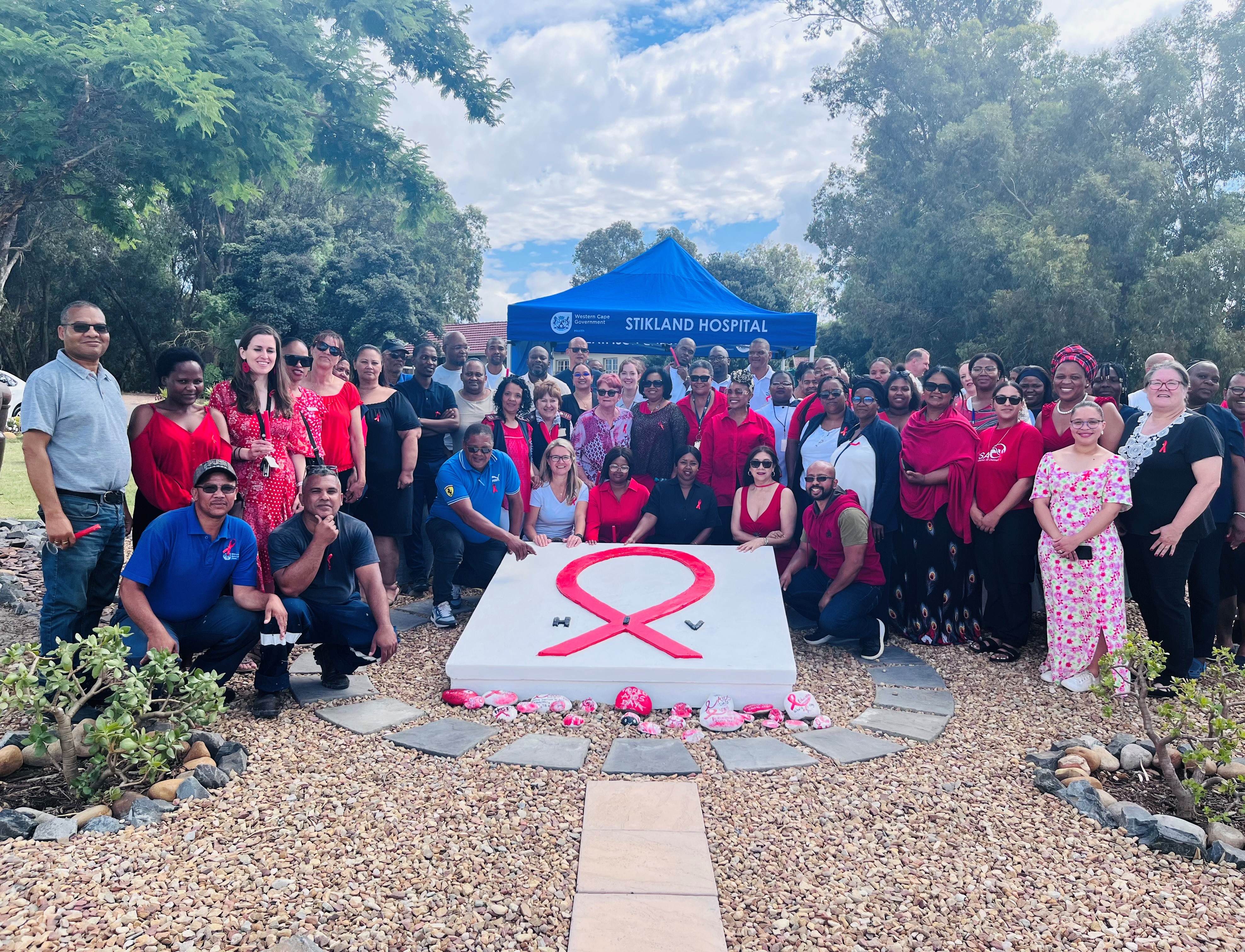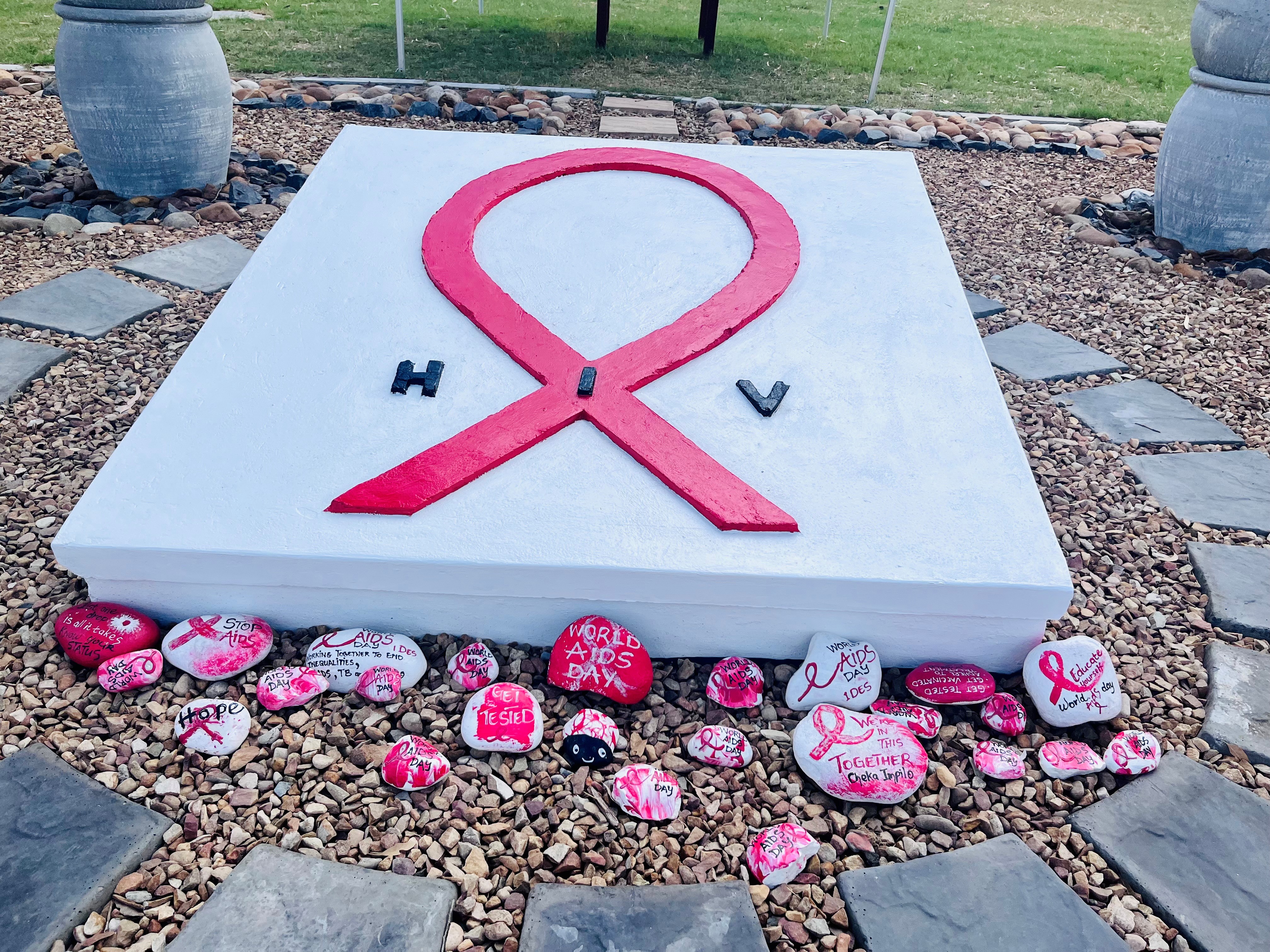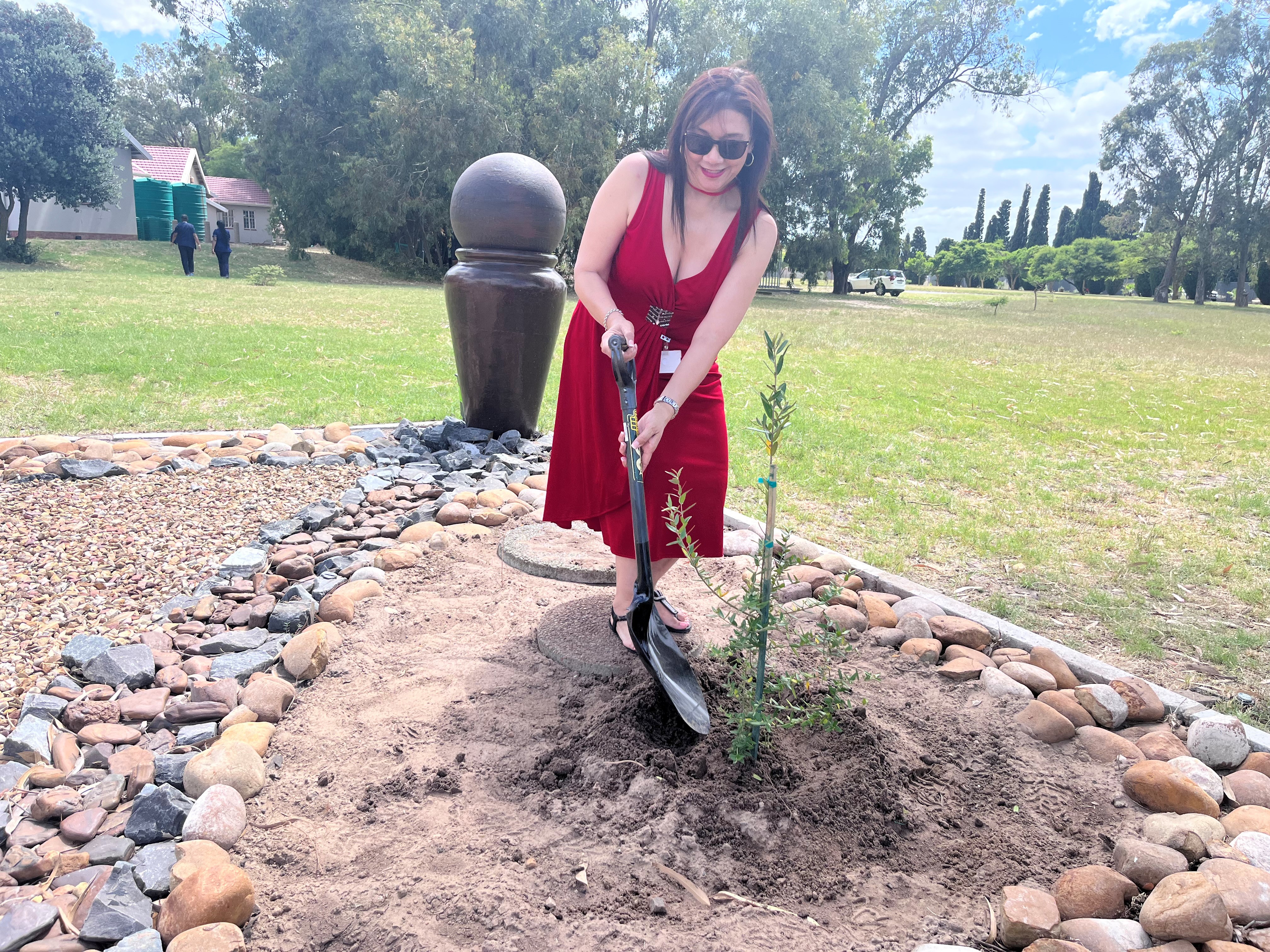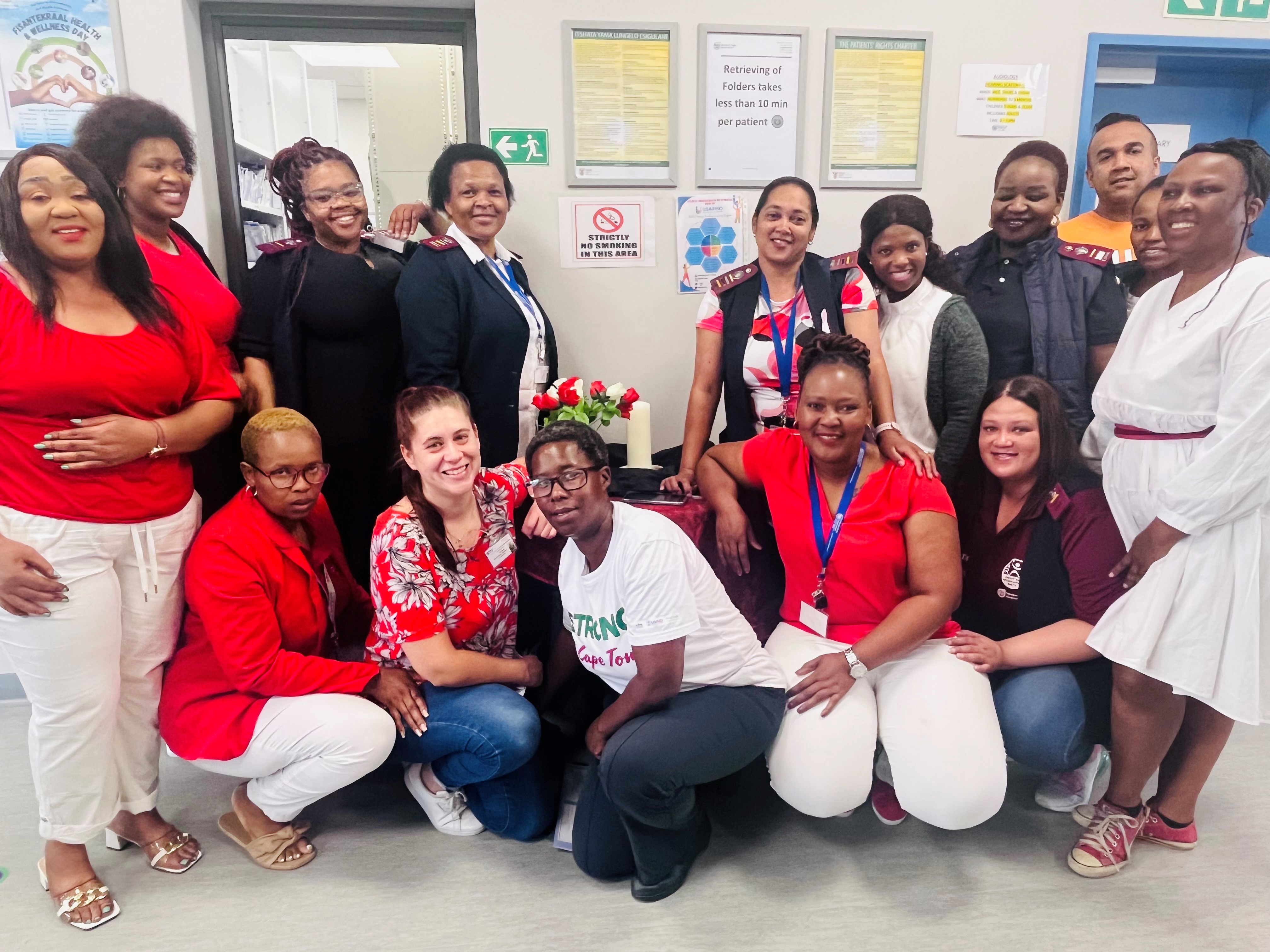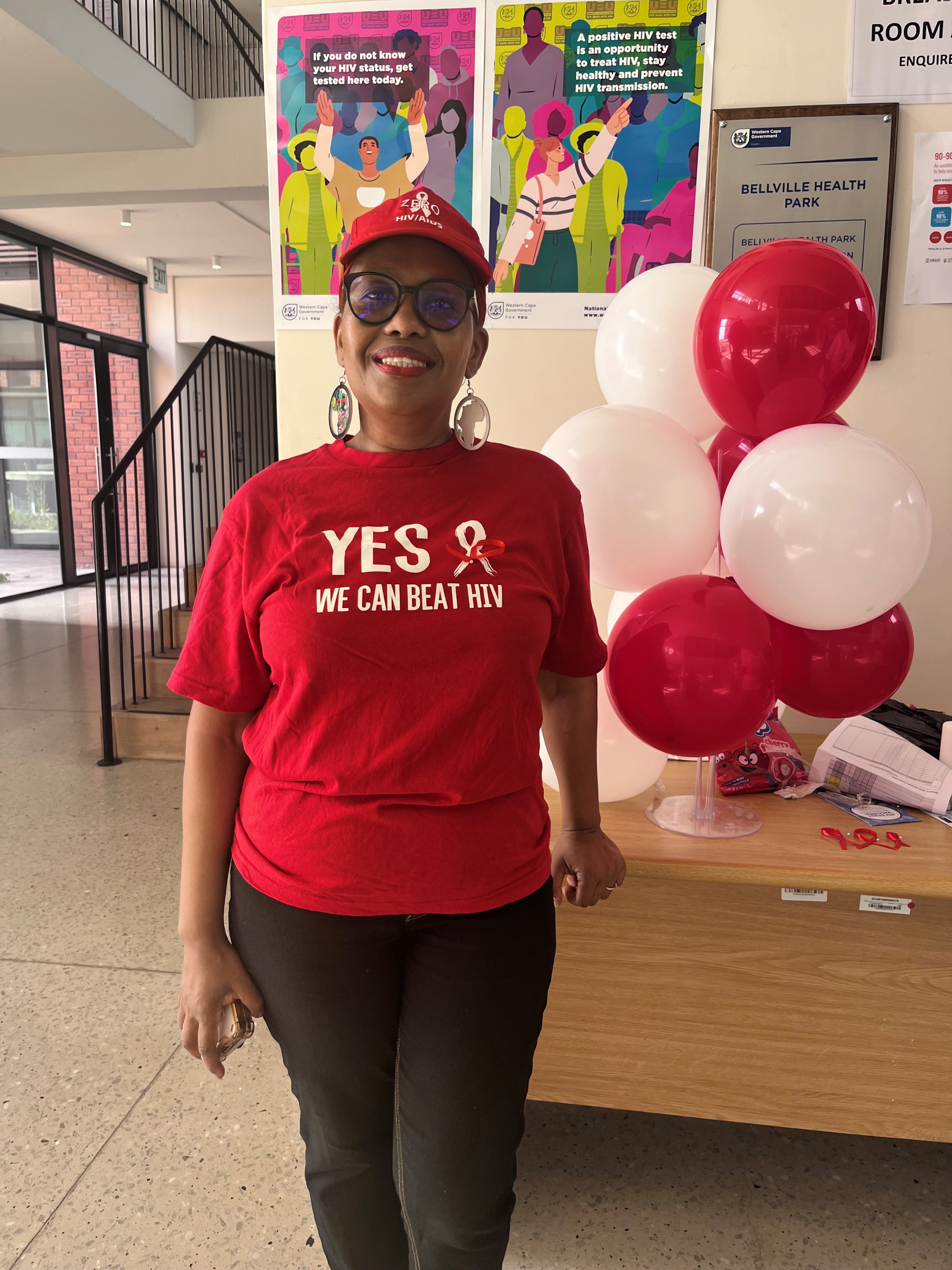
News
Community participation and leadership in spotlight on World Aids Day
Healthcare workers have joined people around the world to commemorate World Aids Day on 1 December 2023 and have highlighted the important role communities play in shaping the HIV/AIDS response.
World AIDS Day is commemorated annually on 1 December and is an opportunity for every community across the globe to unite in the fight against HIV, show support for people living with HIV and to remember those who have lost their lives due to HIV/AIDS. The UNAIDS theme for World AIDS Day (WAD) is Let Communities Lead, emphasising that the world can end AIDS, with communities leading the way.
Communities affected by HIV are at the frontline of progress in the HIV response. Communities or community leaders connect people with local clinics, aid in building trust between healthcare facilities and residents, bring about innovation, monitor and evaluate the implementation of policies and services, and hold providers accountable. This year’s theme reminds us that all of us have a role to play and that we can live healthy lives and build strong and healthy communities through partnerships.
During a World Aids Day outreach at the Fisantekraal Community Day Centre, just outside of Durbanville, Sr Liesel Rose-Benjamin encouraged community members to support prevention strategies. “As a community, our support towards prevention strategies start in our day to day lives. This means making healthy choices: choosing to participate in safe sex and being tested for HIV and sexually transmitted infections regularly, among other things. It is also important to take antiretroviral medication as prescribed by a healthcare worker. ARVs can also be used to reduce the risk of mothers passing HIV to their children. To our community leaders, let us continue to work together to ensure essential HIV services are maintained in the community. It is also important that we ensure that we reach out to key and vulnerable populations and assist them to access HIV services when needed, especially children, pregnant women and infants. They should receive adequate care.”
At Stikland Hospital, healthcare workers commemorated the day through art and unveiled a monument. Sr Valerie Nel, a clinical coordinator at the hospital, explains: “The unveiling of our HIV monument is what we call our affirmation monument to symbolise the foundation that has been built by our predecessors and colleagues in educating and creating awareness regarding the global HIV crisis. It was a community response. We have built this foundation in our community of Stikland Hospital and are going to continue building on this. The affirmation monument acknowledges the progress made in the treatment of HIV and our colleagues in the community. We take the theme of “let the communities lead” to all our wards with screening, education and creating awareness for clients and staff. Our add on to this is “where there is life there is hope”. The monument also symbolises hope. We will also plant a tree to symbolize growth in our endeavours to combat HIV by strengthening our commitment. As the tree grows it will symbolise the growth in awareness, and the shade the tree offers symbolises the safe haven for all where we will endeavour to minimise stigma and discrimination experienced by those with HIV. This will also affirm our commitment to good patient experience of care.”
HIV REMAINS A RISK BUT HELP IS AVAILABLE
HIV remains a major global public health issue, having claimed 40.4 million [32.9–51.3 million] lives so far with ongoing transmission in all countries globally; with some countries reporting increasing trends in new infections.
Dr Nosi Kalawi, a medical officer for the Western Cape Department of Health and Wellness, oversees the HAST (HIV and AIDS / STI / TB) programme in the Northern and Tygerberg District. Dr Kalawi, who is based at the Bellville Health Park, says in the Northern sub-district, at least 27 600 people are HIV positive and aware of it, while 21 000 are on ARVs and 17 000 have their virus undetectable (suppressed). In the Tygerberg sub-district: 34 500 are HIV positive and aware of it, while 24 000 are on ARVs and 19 000 have their virus undetectable (suppressed).
Dr Kalawi shares that various health outreaches are hosted throughout the year which includes partnerships with community organisations to support community members. Dr Kalawe says a whole-of-society approach is key. “If you were diagnosed with HIV and never came to initiate treatment, or you did initiate ART treatment but at some point, you disengaged from treatment, please do come back, we will welcome you back, not judge you, but support you to prevent further barriers that have the potential to cause you to disengage from care. The medicines will reduce the virus and prevent you from getting infections and cancers associated with HIV. You need to lead us into understanding your challenges, so that we can assist in mitigating them.”
She adds: “At the same time, we need to embrace a whole-of-society approach. We have managed to make people more aware of their HIV status. We have improved the quality of life by supplying HIV treatment that is tolerable and effective. Those who stay on HIV treatment have managed to reduce their virus to undetectable levels, making the HIV to be untransmittable (U=U). However, there is still a lot of work that still needs to be done, as we still have a group of HIV patients who continuously disengage from HIV treatment, meaning that their virus is detectable, and so they continue to transmit the virus. This is why we need everyone to get involved and encourage our communities to lead.”
AWARENESS IS KEY
HIV spreads more easily in the first few months after a person is infected, but many are unaware of their status until the later stages, according to the World Health Organisation (WHO). In the first few weeks after being infected, people may not experience symptoms. Signs and symptoms from who include an influenza-like illness including:
- fever
- headache
- rash
- sore throat.
The infection progressively weakens the immune system. This can cause other signs and symptoms, as outlined by WHO:
- swollen lymph nodes
- weight loss
- fever
- diarrhoea
- cough.
Without treatment, people with HIV infection can also develop severe illnesses:
- tuberculosis (TB)
- cryptococcal meningitis
- severe bacterial infections
- cancers such as lymphomas and Kaposi's sarcoma.
- HIV causes other infections to get worse, such as hepatitis C, hepatitis B and mpox.
“Testing for HIV is important. Test regularly because if you test negative while you are sexually active, you get an opportunity to be offered a daily pill for preventing HIV and keeping you negative. On the other hand, if you test positive, the sooner you know the better as you will receive life-saving treatment which improves your immunity, prevents infections and cancers that are associated with HIV, and you will have a better outcome and good quality of life. If you are a couple with a woman being pregnant or breastfeeding, by testing and taking ARVs, if positive, you will prevent vertical transmission of HIV to your baby. If you are on HIV treatment and you stay on treatment, the virus in the body decreases to levels that are not easily seen (undetectable), making it difficult to transmit the virus to somebody else, meaning that you are contributing to reducing HIV disease in the society. You don’t need to go through this alone, speak to a healthcare worker at your clinic. Your treatment is confidential.” says Dr Kalawe.
WHO recommends that every person who may be at risk of HIV should access testing. People at increased risk of acquiring HIV should seek comprehensive and effective HIV prevention, testing and treatment services. HIV infection can be diagnosed using simple and affordable rapid diagnostic tests, as well as self-tests. It is important that HIV testing services follow the 5Cs: consent, confidentiality, counselling, correct results and connection with treatment and other services.
If you need counselling or free HIV testing, please visit your local clinic. Only your healthcare worker will know about your test, test results and counselling, this means your treatment is confidential.
Various community outreaches are hosted throughout the year. All people are encouraged to make use of the free testing services and to take treatment as advised. With increasing access to prevention, treatment and care, HIV has become a manageable chronic condition enabling all people to live a long healthy life.
Join us and lead the way in the fight against HIV and by making healthy choices today!

